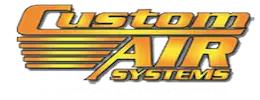As winter approaches in Alvin, TX, the importance of having a reliable heating, ventilation, and air conditioning (HVAC) system in your commercial space cannot be overstated. The fluctuating temperatures and potential for cooler weather mean that your HVAC system needs to be in top-notch condition. But how can you tell if it’s time to upgrade your existing system before the chilly season hits? This blog will walk you through the signs that your commercial HVAC system may need an upgrade, helping you ensure your business remains comfortable and efficient throughout the winter.
Understanding the Local Climate
Before diving into the signs of HVAC upgrades, it’s essential to understand Alvin’s climate. Situated in the southeastern region of Texas, Alvin experiences a humid subtropical climate. Winters here are generally mild but can bring cooler temperatures and occasional cold fronts. This climate necessitates a reliable HVAC system to maintain a comfortable indoor environment for employees and customers alike. As such, regular maintenance and timely upgrades are crucial for any business looking to thrive in this dynamic weather.
Why Upgrading Your HVAC System Matters
Upgrading your HVAC system is not just about comfort; it’s about efficiency, safety, and long-term savings. An outdated system can lead to increased energy bills, frequent breakdowns, and even potential health risks due to poor air quality. In fact, the U.S. Department of Energy estimates that heating and cooling account for approximately 48% of the energy use in a typical American home, and similar percentages can be expected in commercial buildings. Investing in an upgrade can significantly improve energy efficiency, reduce costs, and create a healthier work environment.
Signs Your Commercial HVAC System Needs an Upgrade
1. Age of the System
One of the most significant indicators that it might be time to upgrade your HVAC system is its age. Most commercial HVAC systems have a lifespan of about 15 to 20 years. If your system is approaching or exceeding this age, it may struggle to keep up with the demands of your business.
Tip: Keep a record of your HVAC system’s installation date and schedule a professional evaluation to determine if an upgrade is necessary.
2. Rising Energy Bills
Have you noticed an increase in your energy bills despite similar usage patterns? Inefficient HVAC systems can lead to excessive energy consumption, resulting in higher utility costs. According to the Energy Information Administration (EIA), commercial buildings in the U.S. spent an average of $1.66 per square foot on energy in 2019. If your bills are consistently above this average, it’s time to investigate.
Tip: Monitor your energy bills over several months. If you see a consistent upward trend, consider having your system evaluated.
3. Inconsistent Temperatures
Are some areas of your building warmer or colder than others? This inconsistency could indicate that your HVAC system isn’t functioning optimally. Hot and cold spots can lead to discomfort for employees and customers alike, and they often signal that your system is unable to maintain a consistent temperature.
Tip: Conduct a walkthrough of your facility and take note of any temperature discrepancies. This can provide valuable information to your HVAC technician.
4. Frequent Repairs
If you find yourself calling for HVAC repairs more frequently than in the past, it may be time for an upgrade. As systems age, they become more prone to breakdowns. A recent study by the Air-Conditioning, Heating, and Refrigeration Institute (AHRI) found that businesses can waste an average of 30% of their energy costs on poorly functioning HVAC systems.
Tip: Keep track of repair costs over the past few years. If repair expenses are adding up to a significant amount, an upgrade may be more cost-effective in the long run.
5. Poor Air Quality
Indoor air quality is crucial for maintaining a healthy work environment. If employees are frequently reporting respiratory issues, allergies, or other health problems, your HVAC system may not be filtering air effectively. The Environmental Protection Agency (EPA) states that indoor air can be two to five times more polluted than outdoor air. An upgrade to a modern system with improved filtration and ventilation capabilities can drastically improve air quality.
Tip: Consider investing in air quality monitors to track the levels of pollutants in your building. If readings are high, an upgrade may be necessary.
6. Loud Noises
Strange noises coming from your HVAC system can indicate underlying issues that could necessitate an upgrade. Rattling, buzzing, or hissing sounds are not normal and could signify failing components. A noisy system can also distract employees and customers, affecting productivity and comfort.
Tip: Pay attention to any unusual sounds and have them evaluated by a professional technician.
7. Uneven Humidity Levels
Alvin’s humid climate means that managing humidity levels is vital. If your HVAC system cannot maintain appropriate humidity levels, it could lead to discomfort and even structural issues within your building. Ideally, indoor humidity levels should be between 30% and 50%. High humidity can lead to mold growth, while low humidity can cause dry skin and respiratory problems.
Tip: Use hygrometers to measure humidity levels in various areas of your building. If you find significant fluctuations, an upgrade may be warranted.
8. Technology Limitations
If your HVAC system is outdated, it may not have the latest technology that enhances efficiency and ease of use. Modern systems often come equipped with smart thermostats, zoning capabilities, and advanced filtration options. Upgrading to a more technologically advanced system can save money and make it easier to manage your building’s climate.
Tip: Research the latest HVAC technologies and discuss options with your HVAC technician to find the best fit for your business.
9. Employee Complaints
If your employees are frequently complaining about discomfort, it’s a sign that your HVAC system may need an upgrade. A comfortable working environment is essential for productivity and employee satisfaction. According to a study by the World Green Building Council, improved indoor environmental quality can increase productivity by up to 11%.
Tip: Encourage feedback from employees about their comfort levels and take their concerns seriously.
10. Environmental Regulations
Lastly, keep an eye on local regulations regarding energy efficiency and emissions. If your current system doesn’t comply with new regulations, you may need to upgrade to avoid penalties. The State of Texas has specific requirements that commercial buildings must meet to ensure energy efficiency and reduce environmental impact.
Tip: Stay informed about local and state regulations affecting HVAC systems and consult with your HVAC provider for compliance guidance.
For Commercial HVAC Services in Alvin, TX, Contact Custom Air Systems Today
As winter approaches in Alvin, TX, ensuring that your commercial HVAC system is up to par is crucial for the comfort and efficiency of your business. By keeping an eye out for these signs—age of the system, rising energy bills, inconsistent temperatures, frequent repairs, poor air quality, loud noises, uneven humidity levels, technology limitations, employee complaints, and environmental regulations—you can make an informed decision about whether it’s time to upgrade your HVAC system.
If you’ve noticed any of the signs mentioned above or simply want to ensure your HVAC system is ready for winter, don’t hesitate to reach out to Custom Air Systems. Our team of experienced professionals is dedicated to providing top-notch HVAC services tailored to your business needs. Contact us today for a consultation and ensure your commercial space remains comfortable and efficient all winter long!





